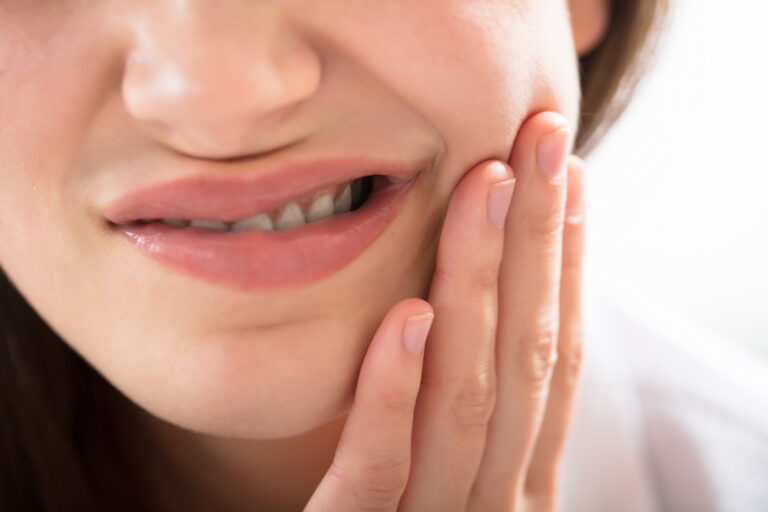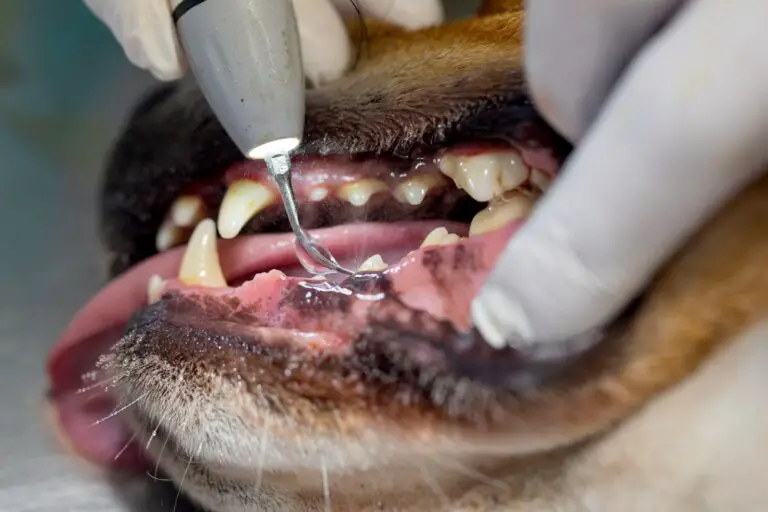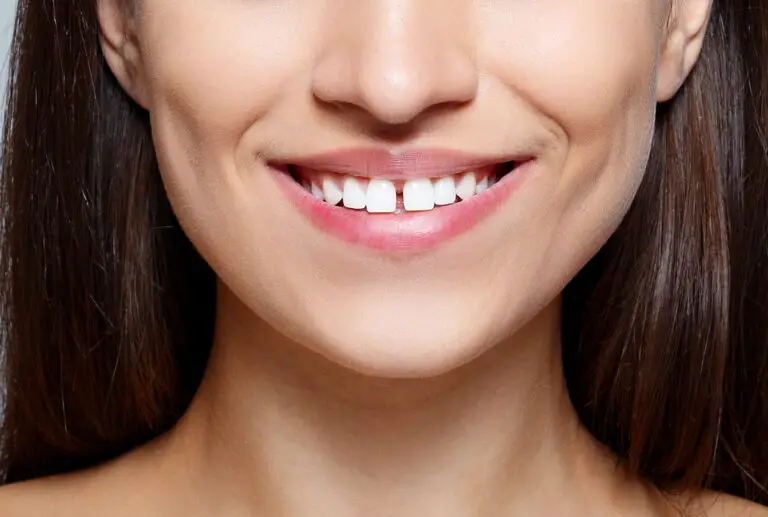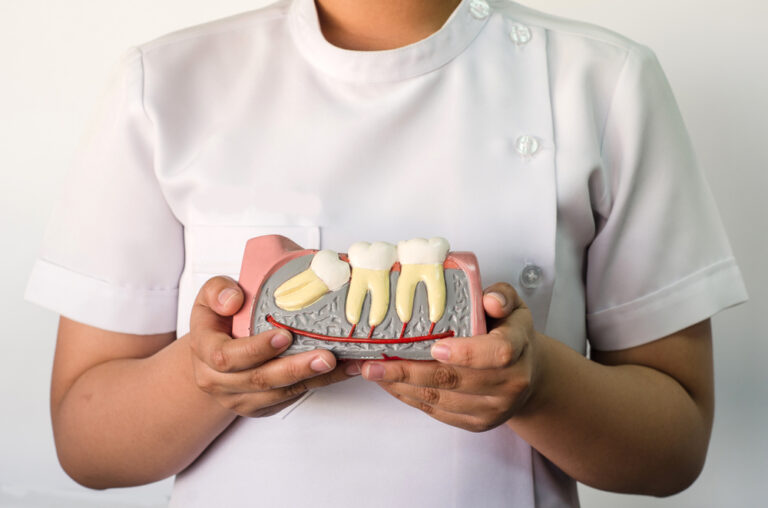Having a beautiful, healthy smile depends on strong, well-aligned teeth. However, while some people seem naturally blessed with a perfect set of pearly whites, others struggle with various dental flaws and oral health issues. What accounts for these differences in our teeth? There are a number of factors that play a role.
Genetic Influences on Tooth Structure
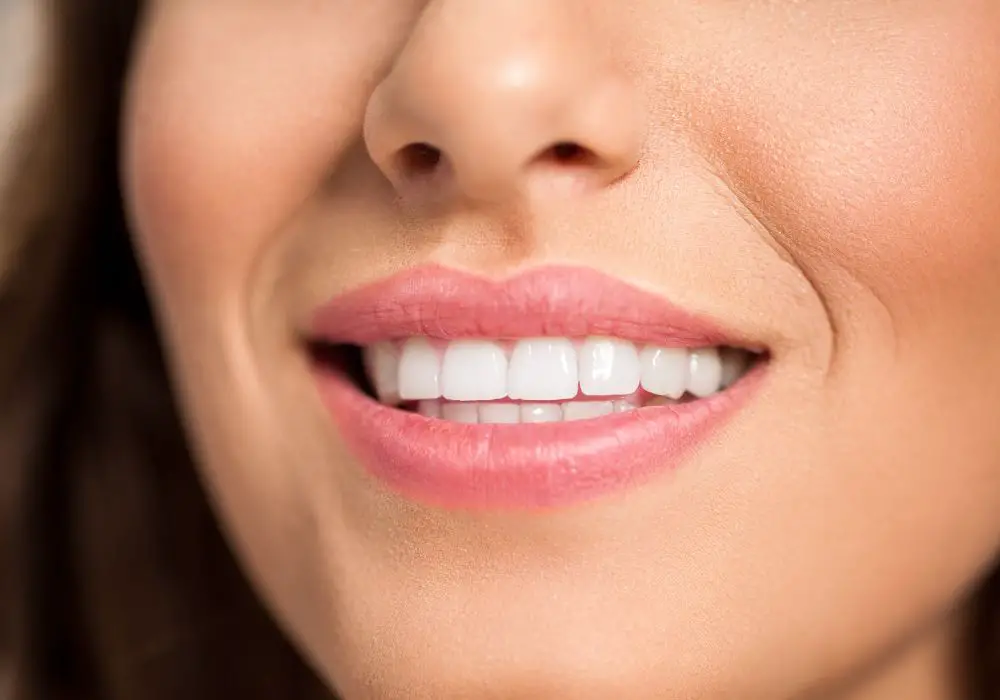
Our teeth begin forming early in embryonic development and the initial tooth structure is determined by our DNA. Genes control the size, shape, and position of both baby teeth and permanent teeth. As a result, genetics significantly influence whether our teeth are straight or crooked, small or large, and prone to malformations.
For example, some people inherit crowded teeth due to the jawbones being too small to accommodate the full set of teeth. Others may get teeth that are small or abnormally shaped. Genes also control the formation of tooth layers – the hard, outer enamel and the inner dentin layer. The thickness and mineral composition of these layers determines strength and resistance to oral diseases. Flaws in genetic coding can lead to deficient enamel or dentin.
In addition, our DNA governs how tooth buds are positioned in the jaw, which guides the placement of permanent teeth as they erupt. For some people, genetics leads to a nice straight line up of teeth. For others, tooth buds develop at odd angles or fail to guide teeth into proper alignment, resulting in crooked teeth or gaps.
Heredity and Oral Health Conditions
A number of oral health conditions have hereditary components as well. Periodontal disease, which damages the gums and jaw bone, displays familial clustering. Certain gene variations affect susceptibility and severity of gum inflammation and tissue destruction. The body’s immune response and ability to fight off oral bacteria is influenced by genetics.
Tooth decay also has genetic risk factors. Enamel formation genes control fluoride incorporation into developing enamel, which affects its resistance to acid attacks from oral bacteria. Researchers have identified more than a dozen gene regions associated with early childhood cavities. Saliva composition and flow rate have genetic determinants as well that modify decay risk.
Even the frequency of dental defects like missing teeth or extra teeth may be inherited. Orthodontic abnormalities such as overbites and underbites often run in families. Truly straight, healthy, problem-free teeth are in part dependent on the luck of the genetic draw.
The Importance of Childhood Nutrition for Teeth
Oral health habits start early. Nutrition in childhood impacts the developing permanent teeth that will last a lifetime. Teeth begin forming in utero and nutrient deficiencies during pregnancy can affect structure. Low birth weight babies tend to have enamel defects and weaker teeth.
Young children need adequate calories plus sufficient calcium, phosphorus, and vitamin D to support tooth mineralization. Shortfalls during infancy or childhood when permanent teeth are still forming leads to hypomineralization defects and enamel problems that increase cavity risk. Malnutrition or nutritional deficiencies can impair tooth hardness and strength.
Proper nutrition helps ensure permanent teeth grow in fully mineralized, while nutritional deficits leave teeth under mineralized and weak. Since our permanent teeth rely on childhood nutrients, pediatric dental care stresses proper diet for cavity prevention and fully developed permanent teeth.
Childhood Habits Affect Alignment and Occlusion
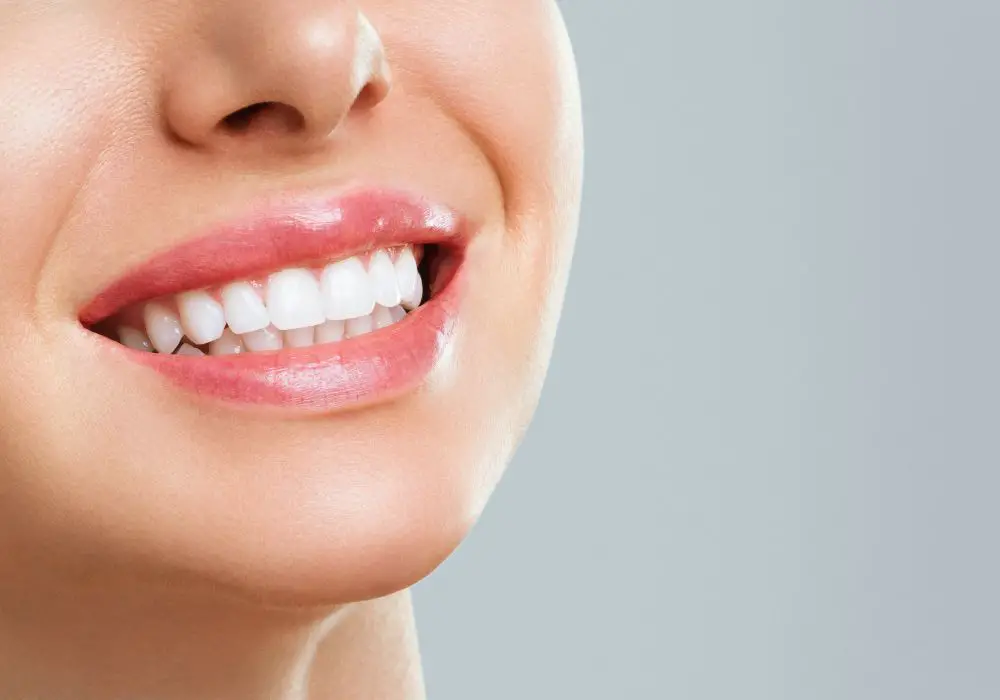
Childhood habits can impact teeth alignment and bite. Sucking habits like pacifiers and thumb sucking exert excessive pressure on developing jaws which can narrow the upper arch and lead to crooked top teeth needing orthodontic correction.
Bottle feeding, especially letting infants sleep with bottles, and extended breastfeeding can also contribute to malocclusions. The tongue position used during breast or bottle feeding encourages an uneven bite and improperly positioned teeth. Prolonged habits past an early age are more likely to deform permanent teeth and affect occlusion.
Dental injuries in childhood can also damage developing permanent tooth buds, leading to missing, discolored, or misshapen permanent teeth later on. Preventing childhood dental trauma helps maintain dental development and health.
Diligent Oral Hygiene Prevents Problems
Daily dental habits make a big difference in tooth and gum health. Consistent brushing with a fluoride toothpaste prevents cavities by controlling plaque bacteria and acid production. Flossing cleans in between teeth where brushing can’t reach. Together, brushing and flossing disrupt bacterial biofilm and remove food particles where bacteria grow.
Those who don’t adequately brush and floss have more built-up plaque, tartar, and inflammation, leading to caries and periodontal diseases. Maintaining good daily cleaning habits throughout life keeps teeth and gums healthy. This prevents more invasive, expensive dental treatments later.
Regular Dental Visits Are Essential
In addition to home care, seeing a dentist regularly allows early identification and treatment of problems. A twice yearly dental cleaning removes hardened tartar that brushing and flossing at home can’t remove. This tartar irritates gums and enables more plaque to stick. Professional scaling prevents destructive periodontal disease.
Routine dental exams also detect small cavities when they are easiest to treat. Fixing small spots of decay prevents the need for crowns, root canals, or tooth removal down the road. Plus, regular patients benefit from topical fluoride treatments applied during office visits for added anti-cavity protection. Good access to dental care promotes better long-term oral health.
Healthy Habits Still Needed for Fluoridated Teeth
Community water fluoridation gives teeth an advantage, as regular low-level fluoride exposure throughout childhood incorporates into developing enamel. Fluoride uptake makes enamel more acid resistant and harder to decay. However, fluoride is not a free pass on oral hygiene.
Fluoride alone cannot overcome poor diet and inadequate cleaning. Cavities still occur, especially if dental care is lacking. Fluoride provides important preventive support, strengthening enamel against acid attacks from plaque bacteria. But daily brushing and flossing, limiting sugary snacks, regular dental visits, and other healthy habits are still essential for optimal dental health.
Harmful Habits Hurt Teeth
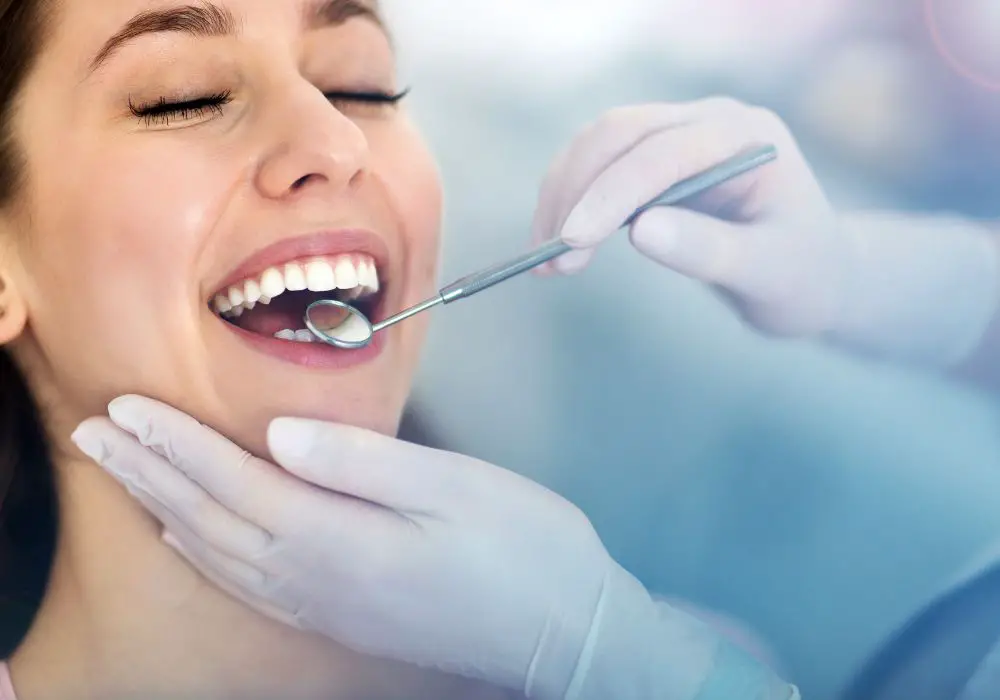
Unhealthy habits erode dental wellness. Frequent smoking or chewing tobacco stains teeth and dramatically escalates risks of gum disease, tooth loss, and oral cancer. The acids and sugars in soda, sports drinks, and other sugary beverages degrade tooth enamel over time.
Heavy alcohol use also contributes to enamel erosion and cavities. Methamphetamine ravages teeth quickly due to its acidic nature and drug-induced dental neglect. The extreme tooth decay seen in meth abusers is an example of how this dangerous stimulant harms the entire body. Avoiding or stopping these harmful habits greatly improves oral health.
Stress and Teeth Grinding Wear Down Teeth
Many people cope with stress and anxiety by clenching their jaws or grinding their teeth, which places intense pressures on teeth. This repetitive habit, known as bruxism, can cause teeth to chip and crack over time. It gradually wears away enamel and tooth structure.
Managing life stressors, taking calming breaths, adjusting sleep positions, and wearing a custom night guard all help minimize bruxism damage. Otherwise, the excessive forces exerted on teeth during clenching and grinding can lead to fractures, increased sensitivity, and the need for crowns or other dental restorations.
Why Good Oral Health Matters
Beyond an attractive smile, good oral health is essential for proper nutrition and speech. Severe tooth decay and gum disease have been linked to increased risk of heart disease, diabetes complications, and preterm birth. Poor oral health also impacts self-esteem and quality of life. Oral diseases cause pain and tooth loss that hinder eating, communication, and normal activities.
Understanding the various contributors to dental health allows people to take preventive action to protect their teeth for better whole body wellness. Healthy teeth provide a lifetime of benefits. Investing in good oral care pays dividends through better health and quality of life.
Conclusion
In summary, while genetics play a role, there are many preventive actions individuals can take to promote excellent oral health throughout life. A healthy diet, good brushing and flossing habits, regular dental visits, and avoiding harmful vices help overcome detrimental genetic tendencies. Teaching children early healthy dental care habits sets them up for a lifetime of strong, attractive teeth. Everyone can take proactive steps to improve their oral and overall health starting today.
Frequently Asked Questions
Q: Why do some people need braces while others don’t?
A: Whether someone needs braces depends on how their teeth are positioned. Teeth that are severely crowded, rotated, or have an uneven bite may require orthodontic treatment with braces to realign things properly. However, there is natural variation in tooth positioning that may not require correction for functionality or aesthetics. The need for braces is determined on an individual basis from a thorough orthodontic evaluation of the bite, spacing, and alignment of the teeth.
Q: How well do whitening toothpastes work?
A: Whitening toothpastes provide some benefit through gentle polishing and abrasive action, but typically don’t dramatically whiten teeth beyond surface stain removal. They help maintain a brighter smile by controlling buildup of stains from coffee, tea, and tobacco but do not change the intrinsic color of teeth. Other products like in-office bleaching procedures and whitening strips with peroxide offer more noticeable whitening results by chemically altering tooth color.
Q: How often should toothbrushes be replaced?
A: Dentists generally recommend replacing your toothbrush about every 3-4 months. The bristles become frayed with use and lose their cleaning efficiency. Old toothbrushes also harbor more bacteria, yeast, and fungi that can lead to reinfection. Getting a new toothbrush regularly ensures you have fresh, clean bristles with full cleaning power. Those who are sick should replace toothbrushes more frequently to avoid reintroducing still active germs.
Q: Can chipped teeth be fixed?
A: Minor chips and cracks in tooth enamel can often be repaired by smoothing and shaping the edges. But larger broken pieces usually require dental bonding for restoration. In bonding, the dentist applies a tooth-colored composite resin material to fill in the missing chip and reshape the natural tooth. The resin bonds seamlessly with the existing enamel. More significant fractures may need veneers or dental crowns to restore form and function.
Q: How often should dental cleanings be scheduled?
A: Professional dental cleanings are typically recommended every 6 months to control mineralized plaque deposits and spot problems early. Some people with great home care habits and naturally healthy teeth and gums may do fine with just annual cleanings. More frequent dental cleanings every 3-4 months may be needed for those highly prone to plaque and tartar buildup or gum disease. Your dentist will advise the ideal cleaning schedule based on your individual oral health status and risk factors.

